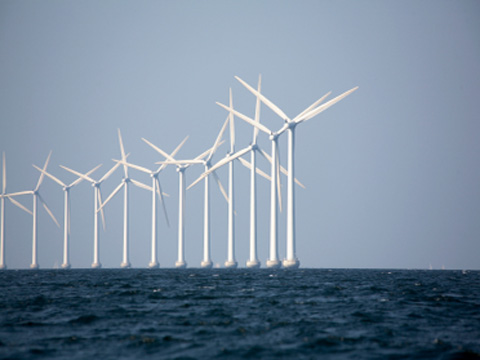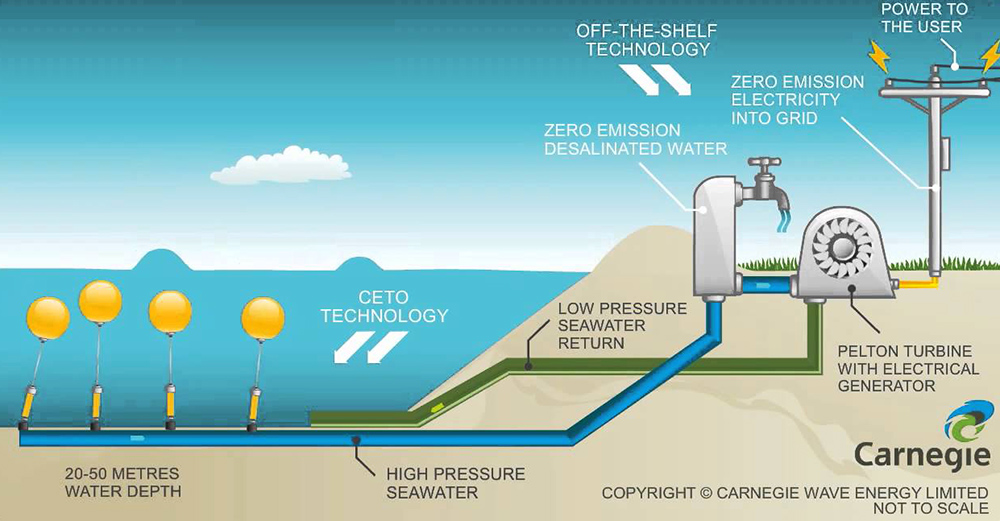Global Voices: Clean energy leads that Canada can follow
The city of Ouarzazate, Morocco, is no stranger to Hollywood. With scenic desert vistas, Ouarzazate has provided backdrops for Lawrence of Arabia, Gladiator and TF’s Game of Thrones. Now Ouarzazate is rolling out the red carpet for the biggest star of all: the sun. Morocco is building the world’s largest solar power plant in Ouarzazate. Already, 500,000 solar panels are operating. When the project is completed in 2018, the plant will produce at least 580 megawatts of energy, enough to power one million Moroccan homes. The government plans to meet 42 per cent of the country’s electricity needs from renewable sources by 2020. Renewable energy offers unparalleled opportunities for nations to dream big. Investments in wind, solar, water and biomass energy can reduce national climate footprints while creating jobs and business opportunities. A newly-released study from Stanford University in California says Canada could realistically meet 100 per cent of our power needs from renewable sources by 2030. The switch would create more than 700,000 new jobs at home and save Canada $107 billion a year by reducing pollution-related health problems, Stanford researchers say. What are we waiting for? While the use of renewable energy is on the rise in Canada, we have yet to see our governments present a truly grand vision like Morocco. Here are a handful of the clean megaprojects around the world that inspire us — and hopefully our leaders, too:
Race to the Sun:
Pakistan wants to exceed Morrocco’s accomplishments and claim the record for the biggest solar farm. In the Cholistan Desert in eastern Pakistan, 400,000 solar panels are already generating 100 megawatts of energy. It’s the first stage in a $46 billion US partnership that has Chinese contractors helping build the facility. When the solar farm is completed in 2017, it’s expected to produce twice as much electricity as Ouarzazate. India’s vision of producing 100 gigawatts of electricity from solar farms and rooftop-mounted solar panels by 2022 has been temporarily derailed by the World Trade Organization (WTO). India’s requirement that a percentage of solar panels be manufactured locally, in order to create jobs and reduce poverty, is an illegal barrier under international trade agreements, according to the WTO.
Winds of Change:
 While Morocco and Pakistan compete for the sun, the U.K. aims to own the wind. British company Dong Energy announced in February it will build the world’s largest ocean-based wind farm off Britain’s east coast. In the next four years, 174 massive wind turbines in the English Channel will provide enough electricity to run one million homes — three per cent of U.K. households. It’s an awesome step in the right direction. The U.K. government is investing $200 million US in the project, which is expected to create more than 2,000 jobs.
While Morocco and Pakistan compete for the sun, the U.K. aims to own the wind. British company Dong Energy announced in February it will build the world’s largest ocean-based wind farm off Britain’s east coast. In the next four years, 174 massive wind turbines in the English Channel will provide enough electricity to run one million homes — three per cent of U.K. households. It’s an awesome step in the right direction. The U.K. government is investing $200 million US in the project, which is expected to create more than 2,000 jobs.
Earth Power:
In February last year, Kenya switched on the biggest-ever geothermal power plant, using the immense heat below the Earth’s surface to power turbines producing 280 megawatts of electricity. Thanks to the new power source, 5,000 more schools will now have power.
Riding the Wave:
 Last year, Australia switched on the world’s first commercial energy plant powered by ocean waves. As a series of underwater buoys bob in the currents, the motion drives pumps that, in turn, power turbine generators with high-pressure water. The project is part of a $3 billion US plan to generate at least 20 per cent of Australia’s energy from renewable sources by 2022. As a side benefit, after the sea water passes through the turbines, it goes to a desalination plant where it’s transformed into fresh, drinkable water. Thanks to our rich bounty of waterways, our country has become the second-largest producer of hydroelectric power after China.
Last year, Australia switched on the world’s first commercial energy plant powered by ocean waves. As a series of underwater buoys bob in the currents, the motion drives pumps that, in turn, power turbine generators with high-pressure water. The project is part of a $3 billion US plan to generate at least 20 per cent of Australia’s energy from renewable sources by 2022. As a side benefit, after the sea water passes through the turbines, it goes to a desalination plant where it’s transformed into fresh, drinkable water. Thanks to our rich bounty of waterways, our country has become the second-largest producer of hydroelectric power after China.
But we also have three oceans and vast quantities of sun-drenched and wind-swept space just waiting to be tapped. Canada, it’s time to dream big on renewable energy.
Marc and Craig Kielburger / Times Colonist March 19, 2016.
Brothers Craig and Marc Kielburger founded a platform for social change that includes the international charity Free The Children, the social enterprise Me to We and the youth empowerment movement We Day.
